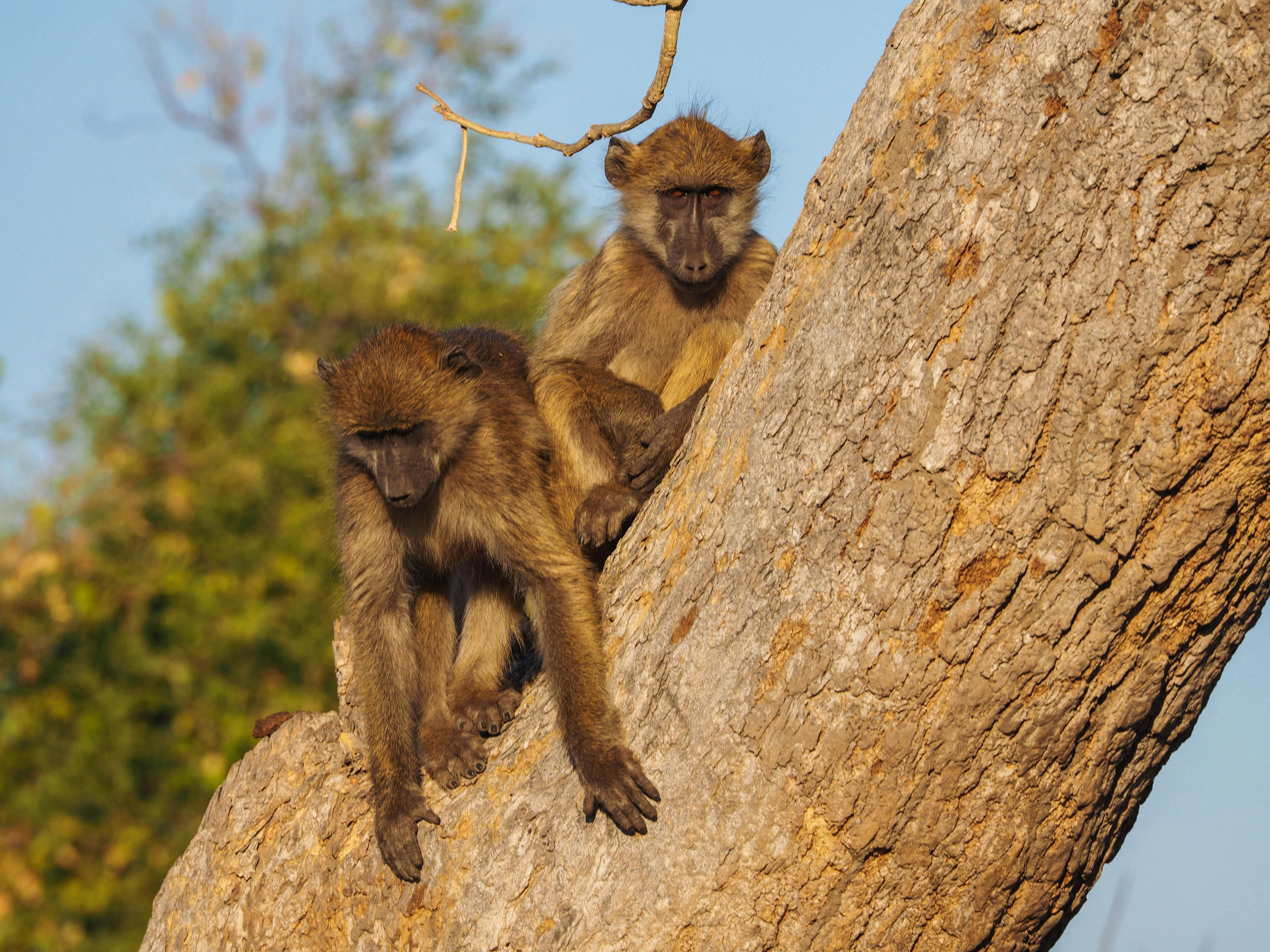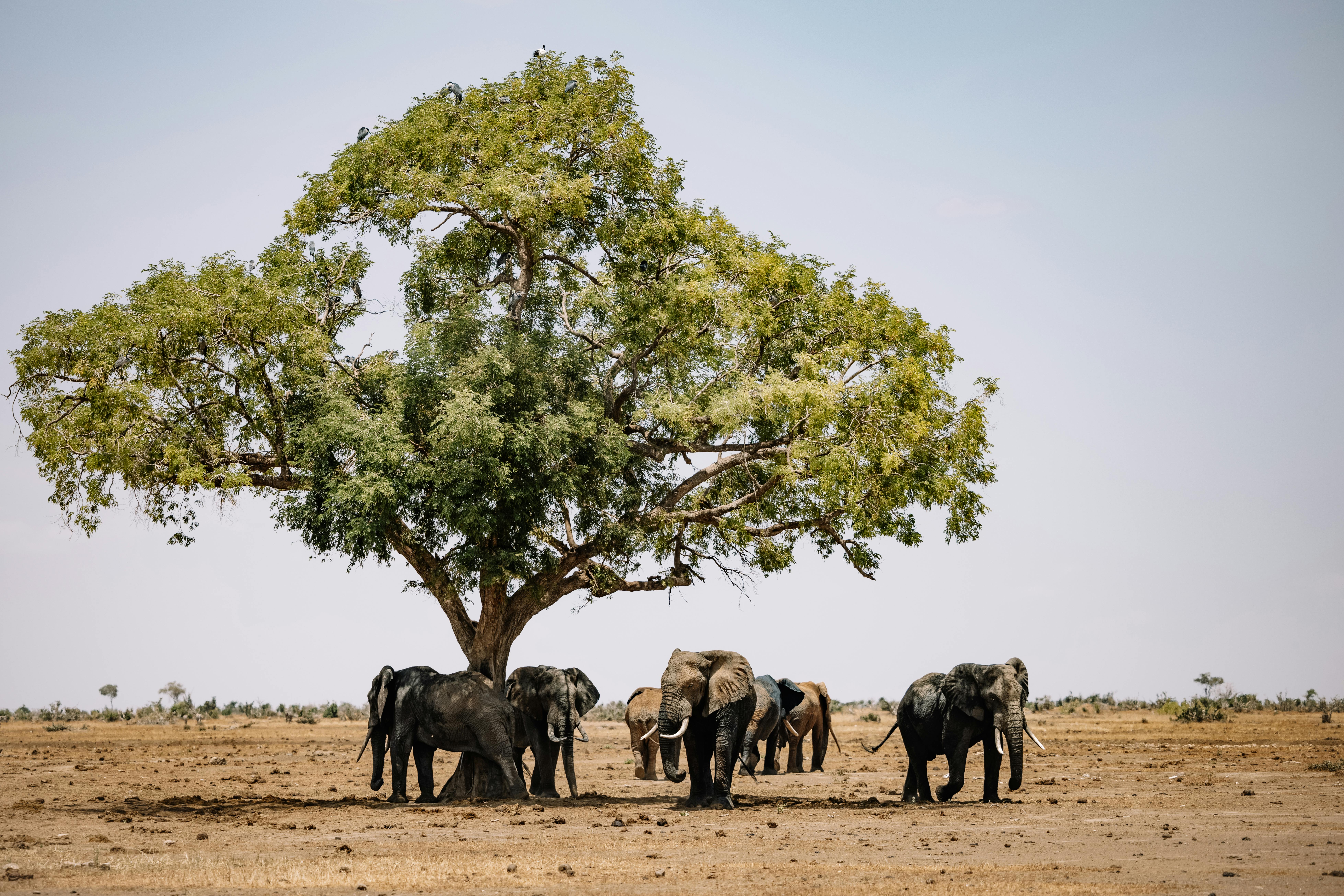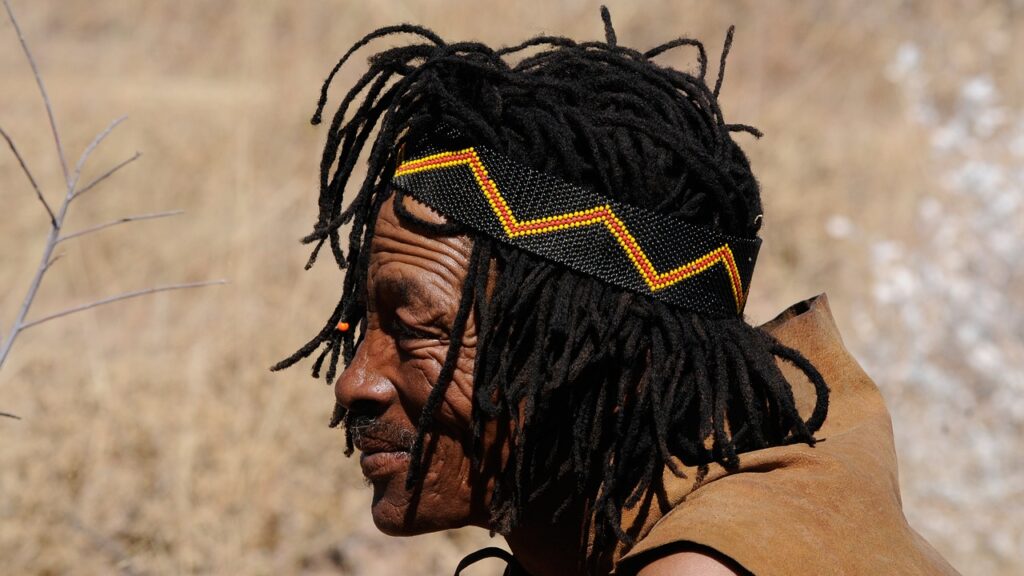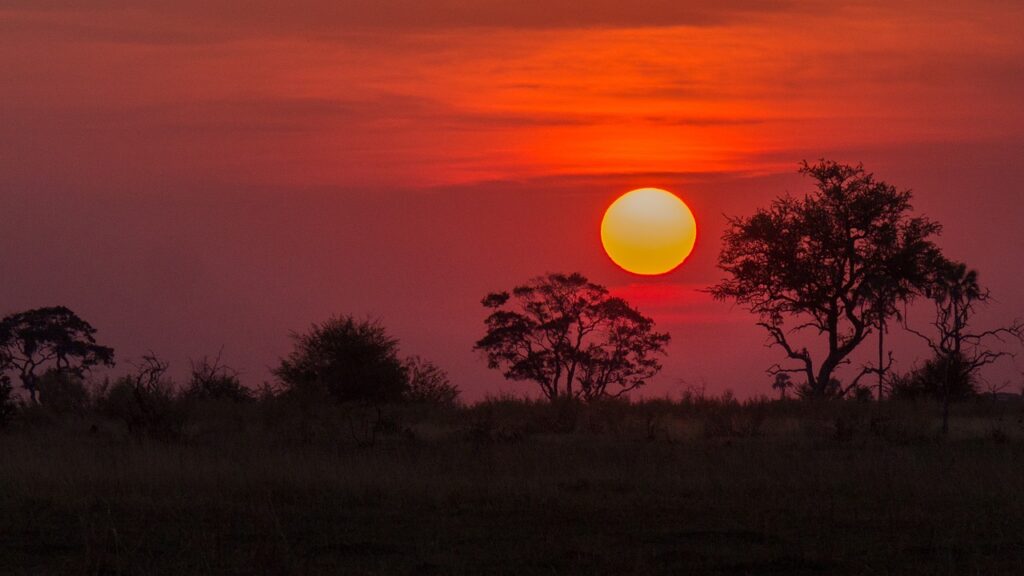Botswana, a country in Southern Africa, is a land of untamed wilderness, majestic wildlife, and breathtaking landscapes. Botswana has always seemed like one of those ultimate luxury destinations, way out of the budget for mere mortals. However, with careful planning and flexibility, it’s possible to explore this incredible country without breaking the bank.
Being a broke backpacker, I’ve learned that getting through the rugged terrain of Botswana, finding affordable accommodations, and discovering budget-friendly activities calls for creativity and resourcefulness. From hitchhiking through the Kalahari Desert to camping under the stars in Chobe National Park, I have seen the beauty and wonder of Botswana on a broke budget.
In this blog, I’ll share with you my tips, tricks, and stories of broke backpacking in Botswana-from the highs of witnessing a majestic lion pride to the lows of having to deal with a flat tire in the middle of nowhere. Take a journey with me through one of Africa’s most incredible countries.
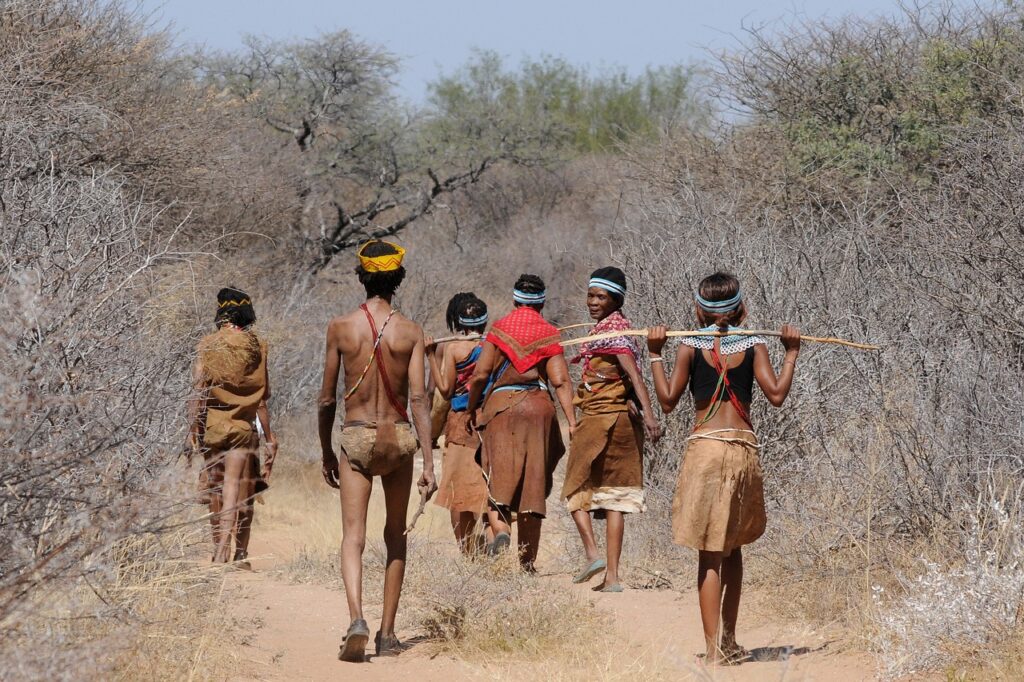
How to get there:
Botswana, a country renowned for its breathtaking landscapes and incredible wildlife, is often perceived as a challenging destination to reach, especially for those relying on public transportation. However, with some planning and flexibility, it’s entirely possible to travel to Botswana from neighboring countries using public transportation. In this post, we’ll explore the various options available for reaching Botswana from South Africa, Namibia, Zambia, and Zimbabwe.
From South Africa
The most common entry point into Botswana from South Africa is through the town of Mafikeng (formerly Mafeking). Intercape buses operate daily from Johannesburg’s Park Station to Mafikeng, from where you can take a taxi or hitchhike to the border post at Ramatlabama. After clearing customs and immigration, you can take a taxi or bus to Lobatse, the first major town in Botswana.
- Intercape bus from Johannesburg to Mafikeng: approximately 5 hours, R200-R300 (USD $15-$20)
- Taxi from Mafikeng to Ramatlabama border post: approximately 30 minutes, R100-R150 (USD $7-$10)
From Namibia
The most convenient entry point into Botswana from Namibia is through the town of Gobabis. Intercape buses operate daily from Windhoek to Gobabis, from where you can take a taxi or hitchhike to the border post at Buitepos. After clearing customs and immigration, you can take a taxi or bus to Ghanzi, the first major town in Botswana.
- Intercape bus from Windhoek to Gobabis: approximately 4 hours, N$200-N$300 (USD $15-$20)
- Taxi from Gobabis to Buitepos border post: approximately 30 minutes, N$100-N$150 (USD $7-$10)
From Zambia
The most common entry point into Botswana from Zambia is through the town of Livingstone. Buses operated by various companies, including Intercape and Mazhandu, run daily from Lusaka to Livingstone, from where you can take a taxi or hitchhike to the border post at Kazungula. After clearing customs and immigration, you can take a ferry or taxi to Kasane, the first major town in Botswana.
- Intercape bus from Lusaka to Livingstone: approximately 6 hours, K500-K700 (USD $25-$35)
- Taxi from Livingstone to Kazungula border post: approximately 1 hour, K200-K300 (USD $10-$15)
- Ferry from Kazungula to Kasane: approximately 1 hour, P50-P100 (USD $5-$10)
From Zimbabwe
The most convenient entry point into Botswana from Zimbabwe is through the town of Francistown. Buses operated by various companies, including Intercape and Greyhound, run daily from Harare to Francistown, from where you can take a taxi or bus to the border post at Ramokgwebana. After clearing customs and immigration, you can take a taxi or bus to Nata, the first major town in Botswana.
- Intercape bus from Harare to Francistown: approximately 8 hours, USD $20-$30
- Taxi from Francistown to Ramokgwebana border post: approximately 1 hour, P100-P150 (USD $10-$15)
When to go:
In this post, we’ll explore the different times to visit Botswana, highlighting the pros and cons of each season, and providing tips on how to make the most of your trip.
Dry Season (May to October)
The dry season is considered the best time to visit Botswana, with clear skies, mild temperatures, and minimal rainfall. This period is ideal for:
- Wildlife spotting: The dry season forces animals to congregate around water sources, making them easier to spot.
- Game drives: The dry terrain allows for better access to remote areas and game reserves.
- Camping: The clear skies and mild temperatures make camping a comfortable and enjoyable experience.
However, the dry season also comes with:
- Higher prices: Accommodation and tour prices tend to be higher during the dry season.
- Crowds: Popular tourist spots can get crowded, detracting from the overall experience.
Green Season (November to April)
The green season, also known as the wet season, is characterized by heavy rainfall, lush vegetation, and a decrease in tourist numbers. This period is ideal for:
- Birdwatching: The green season brings an influx of migratory birds, making it a paradise for bird enthusiasts.
- Photography: The lush vegetation and dramatic skies provide a unique and captivating backdrop for photography.
- Budget-friendly travel: Accommodation and tour prices tend to be lower during the green season.
However, the green season also comes with:
- Rainfall: Heavy rainfall can make roads impassable and limit access to certain areas.
- Malaria: The green season increases the risk of malaria, making it essential to take necessary precautions.
Shoulder Season (April to May and September to November)
The shoulder season, which falls between the dry and green seasons, offers a balance of good weather, fewer crowds, and lower prices. This period is ideal for:
- Budget-friendly travel: Prices for accommodation and tours tend to be lower during the shoulder season.
- Flexibility: The shoulder season offers more flexibility in terms of travel plans and accommodation options.
- Wildlife spotting: The shoulder season can provide excellent wildlife spotting opportunities, as the vegetation is still lush, but the animals are starting to congregate around water sources.
However, the shoulder season also comes with:
- Unpredictable weather: The weather during the shoulder season can be unpredictable, with occasional rain showers or heatwaves.
- Limited access: Some areas, such as the Okavango Delta, may still be inaccessible due to flooding or wet conditions.
Botswana is a year-round destination, and the best time to visit depends on your preferences and priorities. By understanding the pros and cons of each season, you can plan your trip accordingly and make the most of your broke backpacking adventure in Botswana.
When to Go:
- Dry season (May to October): Best for wildlife spotting, game drives, and camping.
- Green season (November to April): Best for birdwatching, photography, and budget-friendly travel.
- Shoulder season (April to May and September to November): Best for budget-friendly travel, flexibility, and wildlife spotting.
What to Pack:
- Shoulder season: Layers for unpredictable weather, comfortable clothing, and a hat.
- Dry season: Comfortable clothing, sunscreen, and a hat.
- Green season: Waterproof gear, insect repellent, and a first-aid kit.
Best Itineraries:
3-Day Itinerary
- Day 1: Arrive in Kasane, explore the town, and visit the Kasane War Memorial.
- Day 2: Take a ferry to Impalila Island, go on a game drive, and spot wildlife such as elephants, hippos, and crocodiles.
- Day 3: Visit the Chobe National Park for a game drive and spot more wildlife, then return to Kasane for departure.
1-Week Itinerary
- Day 1-2: Arrive in Maun, explore the town, and take a scenic flight over the Okavango Delta.
- Day 3-4: Take a bus to Nata and explore the Makgadikgadi Pans, one of the largest salt pans in the world.
- Day 5-6: Visit the Nxai Pan National Park and spot wildlife such as elephants, giraffes, and lions.
- Day 7: Return to Maun for departure.
2-Week Itinerary
- Day 1-3: Arrive in Kasane, explore the town, and take a game drive in the Chobe National Park.
- Day 4-6: Take a bus to Maun and explore the Okavango Delta by boat or mokoro (traditional canoe).
- Day 7-9: Visit the Moremi Game Reserve and spot wildlife such as elephants, lions, and cheetahs.
- Day 10-12: Take a bus to Ghanzi and explore the Kalahari Desert, including the Deception Valley and the Ghanzi Craft Village.
- Day 13-14: Return to Kasane for departure.
1-Month Itinerary
- Week 1: Explore the Chobe National Park and the Okavango Delta.
- Week 2: Visit the Moremi Game Reserve, the Makgadikgadi Pans, and the Nxai Pan National Park.
- Week 3: Explore the Kalahari Desert, including the Deception Valley and the Ghanzi Craft Village.
- Week 4: Visit the Kgalagadi Transfrontier Park and spot wildlife such as lions, cheetahs, and hyenas.
3-Month Itinerary
- Month 1: Explore the northern part of Botswana, including the Chobe National Park, the Okavango Delta, and the Moremi Game Reserve.
- Month 2: Visit the central part of Botswana, including the Makgadikgadi Pans, the Nxai Pan National Park, and the Kalahari Desert.
- Month 3: Explore the southern part of Botswana, including the Kgalagadi Transfrontier Park and the Tuli Block.
6-Month Itinerary
Months 1-2: Northern Botswana
- Explore the Chobe National Park and take a game drive to spot wildlife such as elephants, lions, and giraffes.
- Visit the Okavango Delta and take a boat or mokoro (traditional canoe) trip to explore the delta’s waterways and spot wildlife.
- Stop by the Moremi Game Reserve and spot wildlife such as cheetahs, hyenas, and antelopes.
Months 3-4: Central Botswana
- Visit the Makgadikgadi Pans and explore the salt pans, including the famous Kubu Island.
- Explore the Nxai Pan National Park and spot wildlife such as elephants, giraffes, and lions.
- Stop by the Kalahari Desert and explore the Deception Valley and the Ghanzi Craft Village.
Months 5-6: Southern Botswana
- Visit the Kgalagadi Transfrontier Park and spot wildlife such as lions, cheetahs, and hyenas.
- Explore the Tuli Block and spot wildlife such as elephants, giraffes, and antelopes.
- Stop by the Khama Rhino Sanctuary and spot rhinos in their natural habitat.
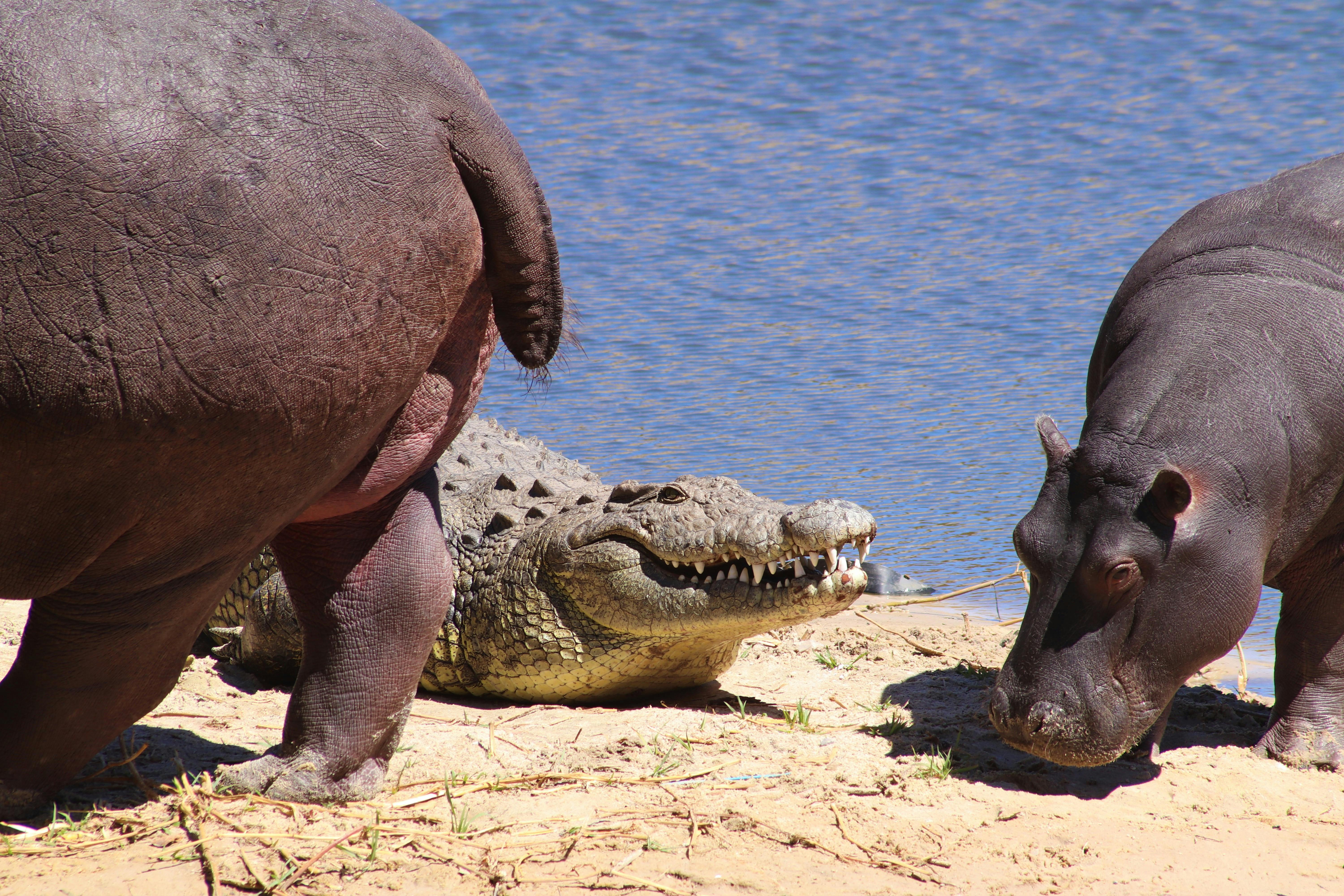
Transportation:
Botswana can be a challenging destination to navigate, especially for broke backpackers. However, with a little planning and flexibility, it’s entirely possible to get around Botswana using public transportation and hitchhiking. In this post, we’ll explore the various options available, including buses, combis, and hitchhiking, and provide tips on how to use them safely and effectively.
Buses
Buses are the most common form of public transportation in Botswana, connecting major towns and cities. The main bus companies operating in Botswana include:
- Intercape: Offers daily services between major towns and cities, including Gaborone, Francistown, and Maun.
- Sebina Bus Service: Connects Gaborone to Francistown and other northern towns.
- Mega Bus: Offers services between Gaborone and Johannesburg, as well as other regional destinations.
Combis
Combis, also known as minivans or taxis, are a popular form of public transportation in Botswana. They operate on fixed routes, connecting towns and villages, and can be flagged down at designated stops or along the road. Combis are often cheaper than buses but can be more crowded and less comfortable.
Hitchhiking
Hitchhiking is a common practice in Botswana, especially among locals and backpackers. While it’s not always the most reliable option, hitchhiking can be a great way to meet locals and get a feel for the country. Here are some tips for hitchhiking in Botswana:
- Be respectful and courteous: Always be respectful and courteous to drivers who pick you up, and offer to contribute to fuel costs.
- Choose a safe location: Look for well-lit and busy areas, such as gas stations or bus stops.
- Use clear signage: Create a clear and visible sign indicating your destination.
- Be prepared to wait: Hitchhiking can be unpredictable, so be prepared to wait for a ride.
Top things to do:
Chobe National Park and Kasane
- Chobe River Sunset Cruise: Take a budget-friendly sunset cruise along the Chobe River and spot wildlife such as elephants, hippos, and crocodiles.
- Chobe National Park Game Drive: Go on a game drive in Chobe National Park and spot wildlife such as lions, leopards, and antelopes.
- Kasane Village Walk: Explore the charming town of Kasane on foot and visit the local market, shops, and restaurants.
- Kasane Hot Springs: Visit the Kasane Hot Springs and relax in the natural hot water.
- Impalila Island: Take a ferry to Impalila Island and explore the island’s beaches, forests, and wildlife.
Okavango Delta and Maun
- Okavango Delta Mokoro Trip: Take a budget-friendly mokoro (traditional canoe) trip through the Okavango Delta and spot wildlife such as elephants, hippos, and crocodiles.
- Moremi Game Reserve Game Drive: Go on a game drive in the Moremi Game Reserve and spot wildlife such as lions, leopards, and antelopes.
- Maun Crocodile Farm: Visit the Maun Crocodile Farm and learn about crocodile conservation and farming.
- Maun Museum: Visit the Maun Museum and learn about the history and culture of the Okavango Delta.
- Thamalakane River: Take a scenic drive along the Thamalakane River and spot wildlife such as hippos, crocodiles, and birds.
Makgadikgadi Pans and Nata
- Makgadikgadi Pans Sunrise Tour: Take a budget-friendly sunrise tour to the Makgadikgadi Pans and witness the stunning scenery and wildlife.
- Nxai Pan National Park Game Drive: Go on a game drive in the Nxai Pan National Park and spot wildlife such as elephants, giraffes, and lions.
- Nata Village Walk: Explore the charming town of Nata on foot and visit the local market, shops, and restaurants.
- Makgadikgadi Pans Zebra Migration: Witness the stunning zebra migration in the Makgadikgadi Pans.
- Gweta Village: Visit the charming village of Gweta and learn about the local culture and traditions.
Kgalagadi Transfrontier Park and Tuli Block
- Kgalagadi Transfrontier Park Game Drive: Go on a game drive in the Kgalagadi Transfrontier Park and spot wildlife such as lions, cheetahs, and hyenas.
- Tuli Block Game Drive: Go on a game drive in the Tuli Block and spot wildlife such as elephants, giraffes, and antelopes.
- Khama Rhino Sanctuary Visit: Visit the Khama Rhino Sanctuary and learn about rhino conservation and spot rhinos in their natural habitat.
- Molema Bush Camp: Visit the Molema Bush Camp and learn about the local culture and traditions.
- Limpopo River: Take a scenic drive along the Limpopo River and spot wildlife such as hippos, crocodiles, and birds.
Ghanzi and the Kalahari Desert
- Kalahari Desert Sunset Tour: Take a budget-friendly sunset tour to the Kalahari Desert and witness the stunning scenery and wildlife.
- Ghanzi Craft Village Visit: Visit the Ghanzi Craft Village and learn about local crafts and culture.
- Deception Valley Tour: Take a budget-friendly tour to Deception Valley and explore the stunning scenery and wildlife of the Kalahari Desert.
- Central Kalahari Game Reserve: Visit the Central Kalahari Game Reserve and spot wildlife such as lions, cheetahs, and hyenas.
- Kgalagadi Cultural Village: Visit the Kgalagadi Cultural Village and learn about the local culture and traditions.
Francistown and the Tati River
- Tati Concessions: Explore the Tati Concessions and spot wildlife such as elephants, giraffes
- Tati River Sunset Cruise: Take a budget-friendly sunset cruise along the Tati River and spot wildlife such as hippos, crocodiles, and birds.
- Francistown Museum: Visit the Francistown Museum and learn about the history and culture of the area.
Food:
As a broke backpacker, the biggest concern when it comes to traveling to a new country is the situation with food: Will it be affordable? Will it be good? Will it be safe to eat? In Botswana, a country known by its breathtaking landscapes and incredible wildlife, the food situation is something unique and fascinating in the culture. For a broke traveler, Botswana can offer a wide variety of foods that are affordable, yet delicious, from traditional to international dishes. In Botswana, the staple food is sorghum, which is a kind of grain that is used to make a variety of dishes, including porridge, bread, and beer. You’ll also find a lot of maize meal, which gets cooked into a thick, comfortable porridge called “pap.” These staple foods are, quite often, accompanied by the different stews and relishes made from beans, vegetables, and meat. A broke backpacker will be able to find these traditional dishes without a problem and at affordable prices, often for under $5.
This can also be said to be one of the best ways to have one native cuisine: eating at the food stalls or street food markets. In Botswana, the term used for these places is “braai,” a place where all sorts of mouthwatering yet economical cuisine can be found. You get all types of food: traditional like “seswaa,” a strong meat stew; modern ones like fried chicken and chips. The best part is that these stalls are very affordable, with meals starting from as low as $2.
Apart from traditional dishes and street food, there are also international cuisines like Indian, Chinese, and European food. These are a bit more expensive than traditional dishes but still relatively cheap, with meals starting from about $10. As a broke backpacker, you may not be able to afford these options every day, but they’re a great way to treat yourself every now and then.
As with any destination, basic food safety precautions should be taken in Botswana. Be wary of undercooked meat and raw vegetables, and only eat at stalls and restaurants that have a good reputation and appear busy. Bringing a water filter or purification tablets is also a good idea since the tap water is not always safe to drink.
When it comes to cooking your own meals, Botswana offers a range of affordable ingredients at local markets and supermarkets. Everything from fresh produce to canned goods is available, as well as some specialty items such as spices and oils. For a broke backpacker, this can be a great way to save money and eat healthy, delicious food.
Traditional or local cuisine in the world of dishes: there are plenty that one might take a desire for when having looked at the options in front of them. Starting off is seswaa, one of Botswana’s traditional dishes composed of some kind of meat boiled slowly – normally beef or goat meat served either with a portion of pap or rice. Yet another popular one is the eating of “mophane worms.”.
Apart from traditional dishes, Botswana also offers a variety of modern cuisine, including fusion dishes that blend traditional ingredients with international flavors. Another popular place for modern cuisine is the capital city of Gaborone, which has a variety of trendy restaurants and cafes serving everything from sushi to pizza.
As a broke backpacker, it’s also worth noting that Botswana has a thriving culture of food sharing and hospitality. In many rural areas, locals will often invite travelers to share meals with them, which can be a great way to experience the local culture and cuisine. Just be sure to bring a small gift, such as a bottle of wine or a box of chocolates, to show your appreciation for the hospitality.
The food in Botswana is a different setup, pretty interesting, and comes with its own peculiarities within the culture. You can find a great deal of varieties of food in reasonably priced restaurants, food stalls, markets, and even good international cuisine as a very broke backpacker. Doing so, you will experience the local cuisine and culture while eating your way within your budget at street food stalls, markets, and local restaurants. And with a little creativity and resourcefulness, you can even cook your own meals and try your hand at traditional Botswana cuisine. Happy eating!
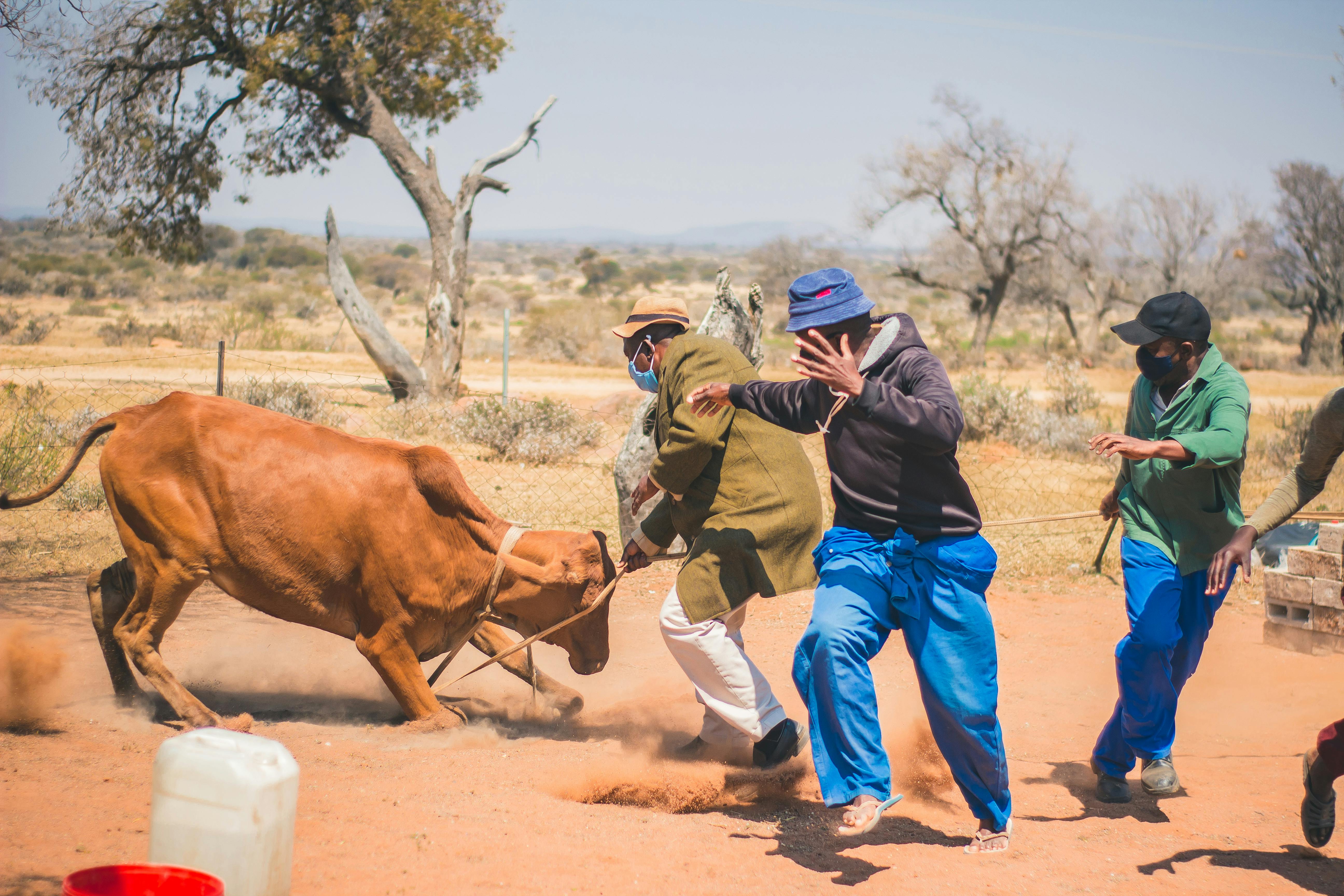
Culture:
Botswana, centrally set in Southern Africa, is a country of great contrasts, the most outstanding feature of its natural beauty being the Okavango Delta, and culturally a gem with the vibrant culture of the Kalahari Desert. Being steeped in tradition and heritage, immersing oneself into the cultures of the different peoples remains an integral part of your Botswana experience as one goes about the incredible country.
At the heart of Botswana’s culture is the concept of “botho,” which roughly translates to “humanity towards others.” This philosophy is deeply inculcated into the daily lives of the Botswana people and is reflected in their warm hospitality and welcoming nature. You often find yourself being greeted with a warm smile and a hearty “dumela” (hello) as a visitor, and you are invited to share in the local customs and traditions.
One of the most interesting things about Botswana’s culture is the great diversity among its people. The country has more than 20 ethnic groups, each with a different language, customs, and traditions. From the San people of the Kalahari Desert to the Herero people of the Okavango Delta, each ethnic group has its own cultural identity, yet they come together to form a vibrant, cohesive national culture.
Music and dance also play a major role in the culture of the Batswana, and very often one finds oneself being treated to impromptu performances in traditional music and dance. The most famous type of traditional music in Botswana is “kwasa kwasa,” a lively and energetic style of music that’s characterized by its fast-paced rhythms and catchy melodies. You will also be exposed to a variety of traditional dances, which include the “pelo” dance of the San people from the Kalahari Desert.
Botswana’s culture is further reflected in its traditional cuisines, characterized by quantity and flavor. Among the numerous traditional dishes of Botswana, “seswaa” is one of the most preferred; it is a very delicious stew made with meat and a great deal of vegetables. You’ll also encounter a wide range of other traditional dishes, including “mophane worms” (a type of caterpillar that’s commonly eaten in Botswana), “tsamma melon” (a type of melon that’s rich in water and nutrients), and “sorghum porridge” (a hearty and comforting breakfast dish made with sorghum meal).
Besides the rich cultural heritage, Botswana is also home to a lively arts scene, characterized by its vibrant and colorful textiles, basketry, and woodcarvings. You will find an array of traditional crafts on sale at local markets and shops, which include beautifully woven baskets, intricately carved wooden figurines, and amazingly patterned textiles.
The best way to experience the culture of Botswana as a visitor is to attend some of the traditional festivals or ceremonies. Botswana hosts many different, yet very colorful, festivals: Maitisong Festival, showing off traditional music, dance, and theater; Kuru Dance Festival, a display of traditional dance and music; and Matsieng Footprints, a celebration of traditional culture and heritage.
A traditional festival or other kind of ceremony will provide a good opportunity for an overview of the local culture-first thing-to learn about the customs and traditions of the Botswana people. You will enjoy traditional music and dance presentations, have a taste of the local foods and drinks, and explore traditional crafts or souvenirs.
You can experience the culture by attending traditional festivals and ceremonies, as well as by visiting rural villages and communities. Botswana has a lot of rural villages and communities, each with its own culture and traditions. Visiting these villages and communities provides an opportunity to learn about the daily lives and customs of the Botswana people and to experience the warm hospitality and welcoming nature of the local people.
You will also have a chance to learn about both the rich history and heritage the country has as you travel through Botswana. From the ancient rock art of Tsodilo Hills down to the modern-day capital city of Gaborone, Botswana is a country with a rich history and tradition. You will be able to gain a deeper understanding and appreciation of the country’s rich cultural heritage by visiting museums, historical sites, and cultural centers.
The culture of Botswana is a rich and vibrant tapestry, woven from a diverse range of traditional customs, practices, and beliefs. As a visitor to this incredible country, immersing yourself in the local culture is an essential part of the Botswana experience. By attending traditional festivals and ceremonies, visiting rural villages and communities, and learning about the country’s rich history and heritage, you’ll be able to gain a deeper understanding and appreciation of this incredible country and its people.
Accommodations:
Being a broke backpacker, accommodation in Botswana can be a little overwhelming. With a super tight budget and endless options, it is so easy to get caught up in the pursuit of the perfect hostel or budget hotel. But what if I told you that the secret to an unforgettable accommodation experience in Botswana lies not in the luxurious amenities or spotless facilities but in embracing the unknown and booking the cheapest options?
Budget accommodation in Botswana is far from the polished, cookie-cutter hostels, guesthouses, and hotels that dominate so many other more touristy destinations. Here, hostels, guesthouses, and budget hotels are often quirky, rough-around-the-edges, and bursting with character. You will frequently end up in family-run, community-driven, and deeply cultural accommodation by booking the cheapest options.
These budget accommodations may not have the fanciest amenities or the most comfortable beds, but they more than make up for it with their warm hospitality, lively atmosphere, and genuine connection to the local community. You may share a room with locals, learn about their customs and traditions, and sometimes even be invited to join in on family gatherings or community events.
Most of the budget-friendly accommodations are out of the way of other people, usually in tranquil residential areas or even remote. These require a tad more time and effort to secure, but trust me, the rewards will be tenfold. For one thing, you will save enough on accommodation, and for the other, you will witness more of Botswana-its culture and way of life.
Of course, there are risks with booking in the cheapest accommodations, and you’re going to have some surprise elements along the way, too. But for the genuine adventurer, that’s all part of the fun. Will you end up in a hostel with a leaky roof and a loud bar next door? Perhaps. But you might also find your way into a guesthouse filled with comfort, having a stunning view of the Okavango Delta, a family warm in reception, and lifetime recollections.
In Botswana, the accommodation experience is not just about finding a place to rest your head, but about immersing yourself in the local culture, meeting new people, and creating unforgettable memories. By embracing the unknown and booking the cheapest options, you’ll be opening yourself up to a world of possibilities, and setting yourself up for the most unique, crazy, and amazing accommodation experience of your life.
As you travel through Botswana, you’ll begin to realize that the accommodation experience is not just about the physical place you’re staying, but about the people you meet, the experiences you have, and the memories you create. You will be giving yourself the opportunity to experience real Botswana, connect with the local people, and create unforgettable memories that will last a lifetime by embracing the unknown and booking the cheapest options.
The experience of accommodations in Botswana is also deeply tied into the country’s rich cultural heritage. From the colorful textiles and handicrafts adorning the walls of local guesthouses to the traditional music and dance performances that occur in rural villages, every aspect of the accommodation experience is infused with the sights, sounds, and rhythms of Botswana’s vibrant culture.
As you navigate the accommodation scene in Botswana, you’ll also encounter a wide range of fascinating characters, from the warm and welcoming hostel owners who will treat you like family to the colorful and charismatic locals who will regale you with stories of their culture and traditions. By embracing the unknown and booking the cheapest options, you’ll be giving yourself the opportunity to meet these fascinating characters, learn from them, and create unforgettable memories that will last a lifetime.
In the end, the accommodation experience in Botswana is all about embracing the unknown, being open to new experiences, and being willing to take risks. By booking the cheapest options and embracing the unknown, you’ll be setting yourself up for the most unique, crazy, and amazing accommodation experience of your life. So why not take the plunge, book that cheap hostel or guesthouse, and see where the adventure takes you?
Nightlife:
As the sun sets over the vast expanse of the Kalahari Desert, Botswana’s nightlife begins to stir. From the bustling bars and clubs of Gaborone to the laid-back shebeens of rural villages, Botswana’s nightlife scene is a vibrant and unpredictable adventure that’s just waiting to be explored.
In regard to being a jolly good country to tour, one may say that this country also truly reflects in Botswana’s nightlife. Either getting thrown around in the middle of the dancing crowd in a full-on club or over a cold beer in a silent bar, there is always some affable local in the company, who wouldn’t be aloof to share his culture and way of life with him.
The best thing about nightlife in Botswana is that it is unpredictable. You may find yourself joining a spontaneous dance party somewhere in a rural village or get invited to some kind of traditional ceremony that lasts long into the night. Whatever the case, you can be sure that Botswana’s nightlife will always be full of surprises and unexpected adventures.
As you explore Botswana’s nightlife scene, you’ll also begin to notice the unique blend of traditional and modern influences that shape the country’s culture. From the traditional music and dance performances that take place in rural villages to the modern bars and clubs that pulsate with the latest African beats, Botswana’s nightlife is a true reflection of the country’s rich cultural heritage.
Of course, no discussion of Botswana’s nightlife would be complete without mentioning the country’s famous “shebeens.” These informal bars and clubs are a staple of Botswana’s nightlife scene and offer a unique and unforgettable experience for travelers. From the lively music and dancing to the warm and welcoming atmosphere, shebeens are the perfect place to experience the authentic culture and traditions of Botswana.
You will also come across all sorts of interesting characters when exploring the nightlife in Botswana, from the charismatic bar owners who will tell you all about their culture and traditions to the colorful and energetic locals who will invite you onto the dance floor to join in on the fun. By embracing the unknown and immersing yourself in the local culture, you will be able to experience the authentic nightlife of Botswana and thus create unforgettable memories that will last a lifetime.
As the night wears on, you might find yourself dancing under the stars, surrounded by the sounds and rhythms of traditional African music. You might find yourself sharing a laugh and a drink with a group of friendly locals, or learning a few steps of traditional dance from a charismatic instructor. Whatever the case may be, you can be sure that Botswana’s nightlife will always be full of surprises and unexpected adventures.
The bottom line is that nightlife in Botswana is all about embracing the unknown, being open to new experiences, and being willing to take risks. By venturing off the beaten path and immersing yourself in the local culture, you’ll be able to experience authentic Botswana nightlife and create unforgettable memories that will last a lifetime. So why not take the plunge, grab a cold beer, and see where the night takes you?
As you explore the night life of Botswana, you will also begin to appreciate its peculiar cultural heritage. From the brilliant textiles and handicrafts decorating the walls of bars and clubs to the traditional music and dancing that take place in villages, Botswana nightlife epitomizes the country’s rich cultural diversity.
Embracing the unknown and diving into the local culture will allow you to experience the authentic nightlife of Botswana and make truly unforgettable memories that will last a lifetime. Whether you are dancing the night away in a crowded club or sipping on a cold beer in a quiet bar, you will always find yourself surrounded by friendly locals who are eager to share their culture and traditions with you.
Botswana’s nightlife is not just about having a good time but living the real culture and traditions of the place. The time spent trying to know more about the culture and people will be highly rewarding and yield long-lasting memories of a lifetime, and a better understanding and appreciation of the rich cultural heritage that Botswana has in store.
You may find yourself getting lost in the rhythms and the sounds of traditional African music or swept up in the infectious energy of a crowded dance floor as night wears on. Whatever the case, you can be sure that Botswana’s nightlife will always be full of surprises and unexpected adventures.
Ultimately, the nightlife of Botswana reflects the warm and welcoming culture that pervades every fiber of the country. Let yourself be taken by Botswana, without any preconceived notion, and you will definitely come back with unforgettable memories of an absolutely incomparable nightlife. So go ahead, take a cold beer, and let the night take you wherever.
Backpacking Botswana costs:
As a broke backpacker, navigating the costs of traveling in Botswana can be a challenge. However, with some careful planning and research, it’s possible to explore this incredible country on a very tight budget. Here’s a rough breakdown of what you might expect to pay for daily and weekly expenses while backpacking in Botswana:
Daily Expenses:
- Accommodation: P50-100 (approximately $5-10 USD) per night for a basic hostel or guesthouse
- Food: P20-50 (approximately $2-5 USD) per meal for a basic meal at a local restaurant or street food stall
- Transportation: P10-20 (approximately $1-2 USD) per ride for a local taxi or combi
- Activities: P20-50 (approximately $2-5 USD) per person for a basic activity such as a village tour or a visit to a local market
- Total daily expenses: P150-350 (approximately $15-35 USD)
Weekly Expenses:
- Accommodation: P1,050-2,100 (approximately $105-210 USD) per week for a basic hostel or guesthouse
- Food: P1,400-2,800 (approximately $140-280 USD) per week for basic meals at local restaurants or street food stalls
- Transportation: P500-1,000 (approximately $50-100 USD) per week for local taxis or combis
- Activities: P500-1,000 (approximately $50-100 USD) per week for basic activities such as village tours or visits to local markets
- Total weekly expenses: P3,450-6,900 (approximately $345-690 USD)
Tips for Saving Money:
- Stay in basic hostels or guesthouses instead of luxury lodges or hotels
- Eat at local restaurants or street food stalls instead of touristy restaurants or cafes
- Use local transportation such as taxis or combis instead of renting a car or taking a taxi
- Opt for basic activities such as village tours or visits to local markets instead of expensive safari tours or adventure activities
- Consider camping or staying in a hostel dorm instead of booking a private room
By following these tips and being mindful of your expenses, it’s possible to explore Botswana on a very tight budget. Happy backpacking!
Conclusion:
Looking back on my journey through Botswana as a broke backpacker, I am with wonder and awe at all the great experiences that I had and all the memories that I have that are so unforgettable. From the beauty of the Okavango Delta to the culture and tradition of the people, there is something for everyone in Botswana.
Despite the challenges and uncertainties that come with traveling on a tight budget, Botswana was a country remarkably accessible and affordable, even to the most broke of backpackers. Taking leaps of faith into the unknown and embracing that with which I was unfamiliar paid off in ways I never expected to experience in Botswana-and can definitely be replicated.
Whether you are a serious backpacker or just beginning your journey, Botswana will most certainly capture your heart. Why not take the leap and strap on your backpack and go your merry way? The Republic of Botswana is indeed a country that will most certainly leave one with indelible memories and a newfound wonder and awe at the incredible diversity and complexity of our world, with its stunning natural beauty, vibrant culture, and its people-warm and welcoming.
